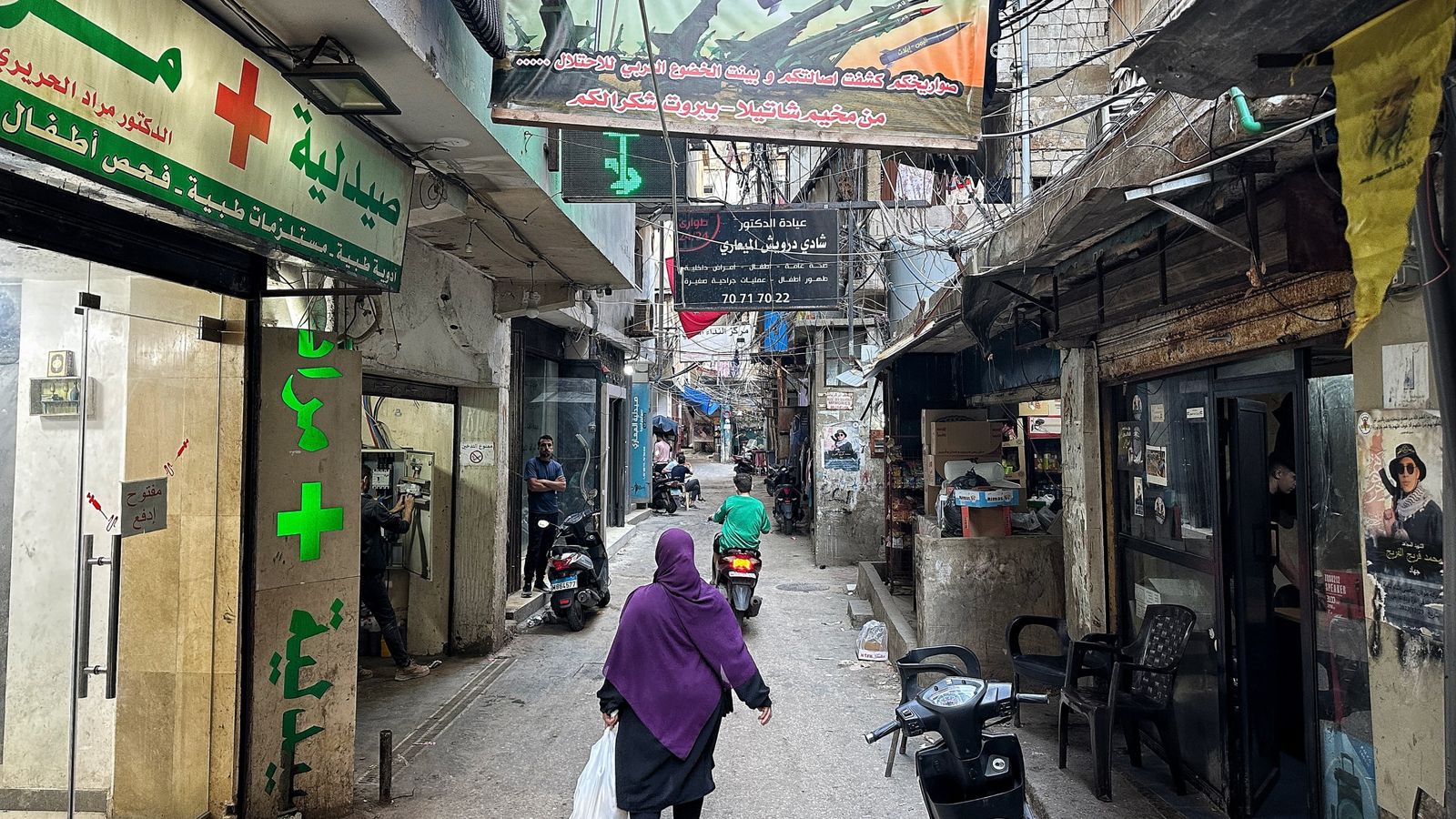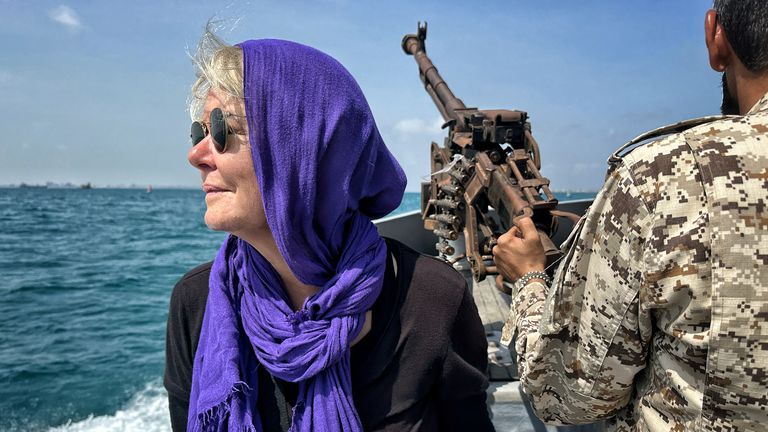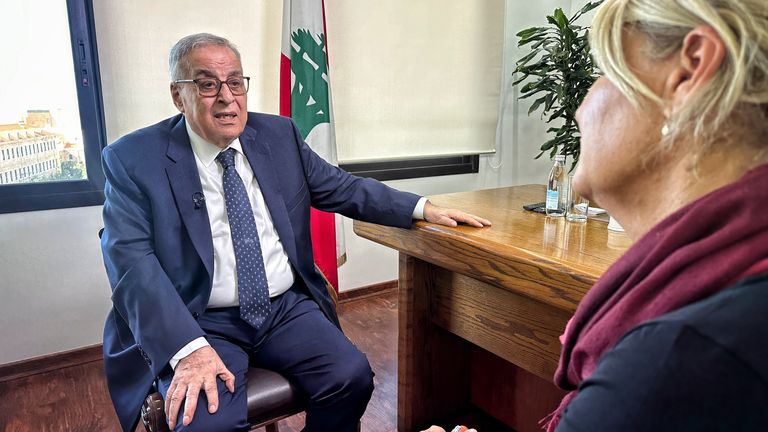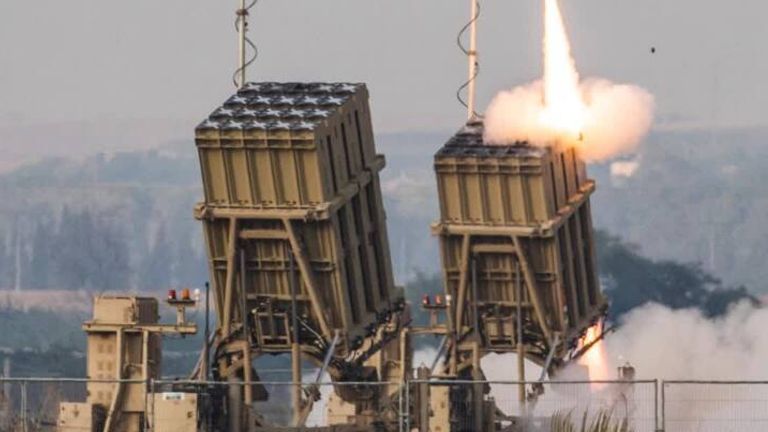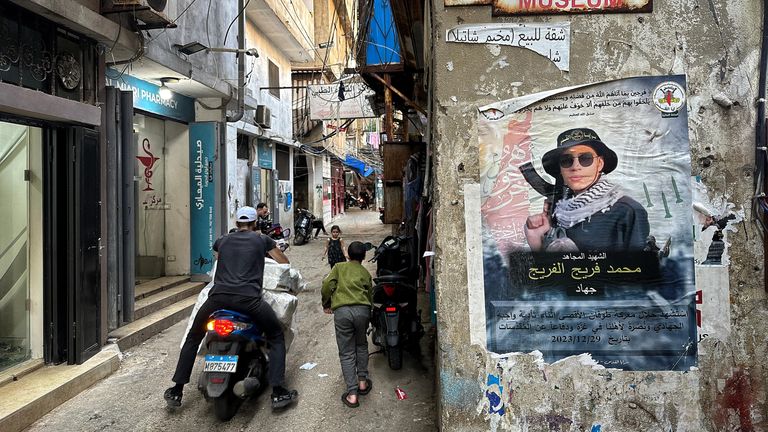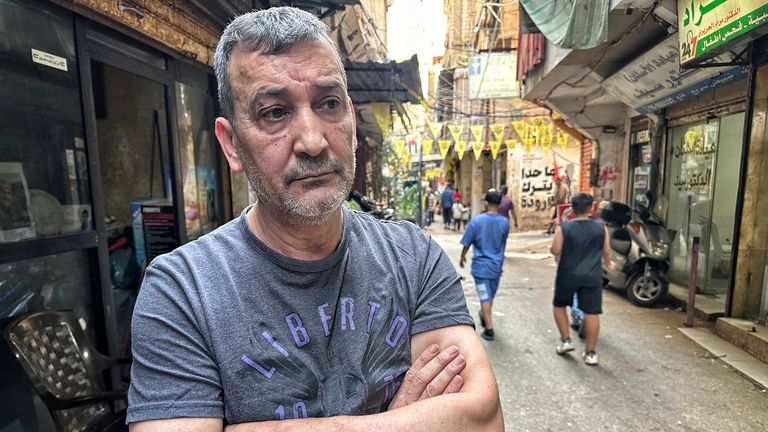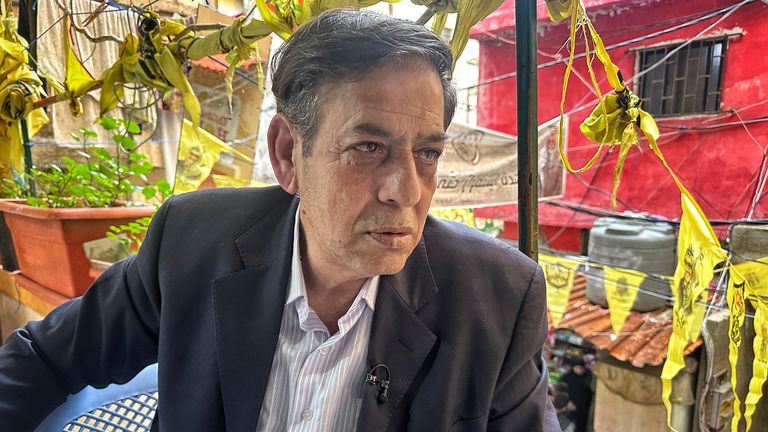Lebanon is balanced as though on an earthquake faultline right now – whatever Israel decides to do next will have massive repercussions throughout the entire region.
That’s how critical the situation is in Lebanon and the surrounding countries, as described by one seasoned Lebanese political analyst.
Khodor Taleb is also the former adviser to three different Lebanese prime ministers, so knows a thing or two about what is at stake.
Follow live:
Israel ‘considered revenge attack on Monday’
Lebanon – like the entire region – is at the crossroads and it is Israel in the driving seat over which road is travelled.
‘The situation will be totally out of control’
“I can tell you 100% that Hezbollah do not want war. The ball is in the Israeli court,” Mr Taleb told Sky News.
The militant group Hezbollah is backed by Iran and has strong ties with both the Iranian leadership and the Islamic Revolutionary Guards Corps (IRGC).
It is very much seen as the strongest and most powerful of Iran’s proxies which operate in multiple countries.
It is therefore potentially in the Israeli crosshairs as it considers how or whether to retaliate against Iran and its network in response to the missile and drone attacks at the weekend.
Mr Taleb is not an isolated voice in warning that an Israeli attack could tip the region into all-out war.
“It will be a huge risk for Israel because it will lead to a big war in the region,” he said.
“It will not be limited to Lebanon. It will definitely spread to Yemen and most probably to the Syrian Golan and the situation will be totally out of control of any international power,” he continued.
“It will be damaging to the whole region.”
His point: Any large-scale Israeli attack against the Lebanese Hezbollah or Iran risks drawing the entire so-called Axis of Resistance into war – and that would involve the Yemeni Houthis, the Iraqi Hezbollah and the various Syrian militias – all of which have links to Iran or Hezbollah.
Read more:
Could Iran defend itself if Israel attacked?
‘Revenge will end up with a bigger war’
While Foreign Secretary Lord Cameron was in Israel urging restraint, his Lebanese counterpart was telling us how he is willing him on to succeed.
“I hope the foreign ministers in Tel Aviv or in Jerusalem, wherever they are, they succeed with them [and persuade them not to retaliate]… to take it easy, and not to start a war with Iranians,” Abdullah Bou Habib told Sky News.
“And they started it,” he added. “They were hitting Iran in many Syrian areas and Iran was not retaliating but now after you hit its consulate, you can’t stop them.”
Mr Habib issued his own dire warnings to try to avert a potentially disastrous attack by Israel.
“Any kind of revenge from Israel is going to end up with a bigger war,” he said.
He blamed the inaction by the United Nations (UN) for not definitively condemning the earlier suspected Israeli attack on the Iranian consulate in Damascus – viewed as the first direct assault by Israel against Iran in more than six months of war in Gaza.
“We are very worried,” the Lebanese foreign minister said.
“We pray for a ceasefire but the UN is not moving in this direction and we are left not able to do anything.”
Read more:
What Middle East countries are unsafe to travel to?
Israel ‘will make own decisions’, Netanyahu says
Are we heading for World War Three?
Asked whether, like Hezbollah, the Lebanese government welcomed the Iranian drone and missile attack against Israel, he responded: “We don’t welcome it nor do we denounce it.
“We are in a very difficult position because Israel started it. We really want peace – 90% of Lebanese really want peace.”
When questioned about just how much influence the Lebanese government has over Hezbollah, which has a powerful military wing believed to be stronger than the Lebanese army plus a political wing including elected MPs, the foreign minister was brutally frank.
“We don’t have influence with them [Hezbollah] in fighting over Israelis,” he admitted. “And when that happens, we support Hezbollah.”
But he went on to focus on the nub of the issue: “And other countries… Syria, Jordan… also have problems because of what Israel is doing.
“The UN asked for a two-state solution in 1947, a long time ago, and this is the solution for all the problems in the Middle East.”
Without a two-state solution, he predicted, the Palestinians will never stop fighting.
‘Help us’
In Beirut’s Shatila refugee camp, which is filled with tens of thousands of Palestinians displaced from previous wars with Israel, there is not so much fear of retaliation as frustration at what they view as Western double standards.
Many mentioned to us the lack of Western condemnation of the direct attack on diplomatic soil at the Iranian consulate in the Syrian capital – widely accepted to be the work of Israel, though the IDF has never confirmed its responsibility.
“Let them respond,” said political activist Ahed Bahar, referring to an Israeli response to Iran’s attack.
“The Israelis are only a tool of the Americans and take their orders from the US, UK and France,” he said.
The upheaval and high number of casualties in Gaza – caused by Israel’s response to Hamas’s attacks on Israel on 7 October – has drawn together not just Sunnis and Shi’ites in Lebanon but also many of the fractured political parties.
Kazem Hasan, the Palestine Liberation Organisation (PLO) chief in the camp, urged the British people to put more pressure on the UK government to help Palestinians.
“I tell to Britain that the struggle [in Gaza] isn’t against terrorism. It’s about Palestinian rights. We need our own state. Put right what you did wrong so many years ago and help us now.”
Lebanon is waiting on tenterhooks to see what unfolds over the coming hours, days and weeks.
Additional reporting from cameraman Jake Britton, specialist producer Chris Cunningham and Lebanon producer Jihad Jneid.
